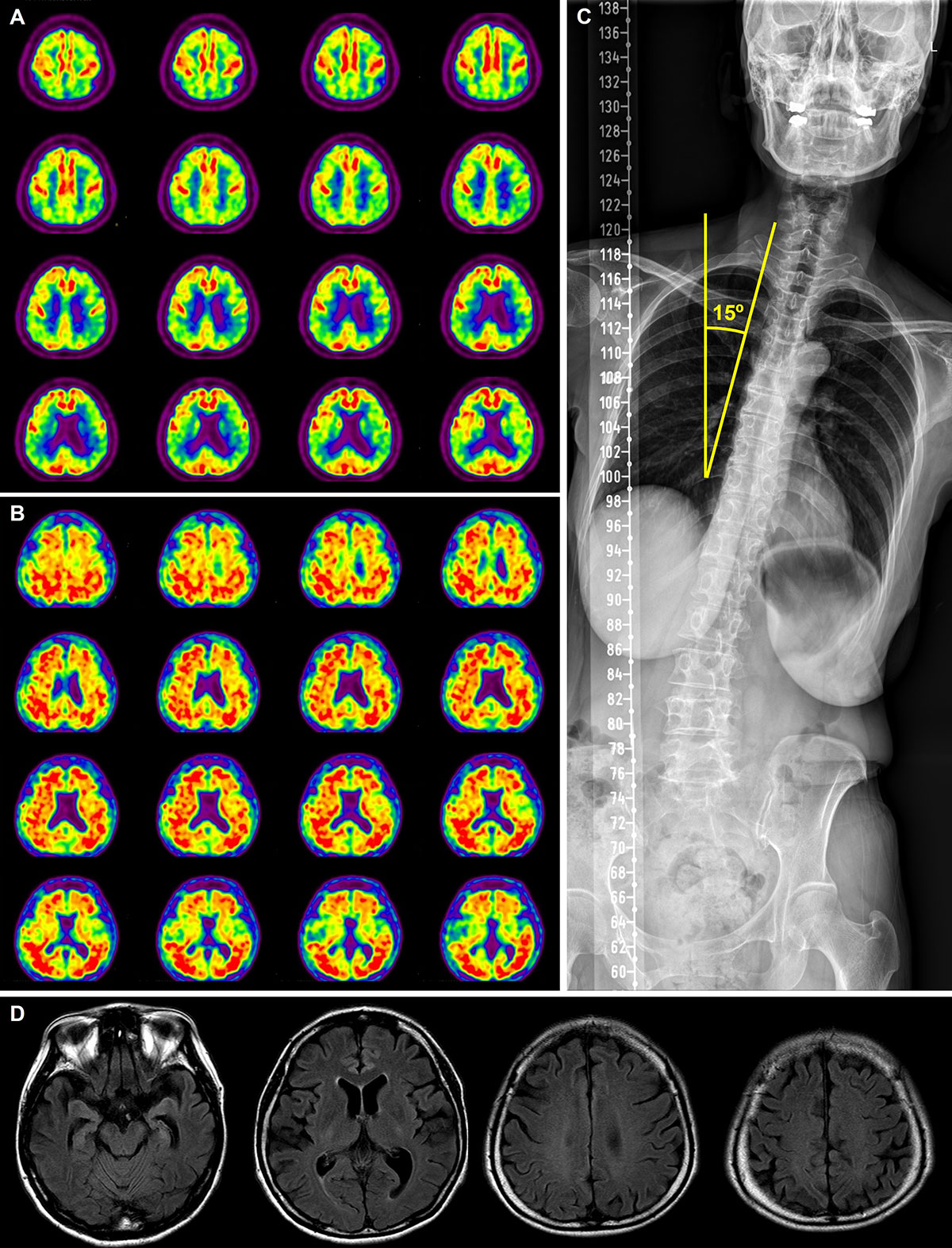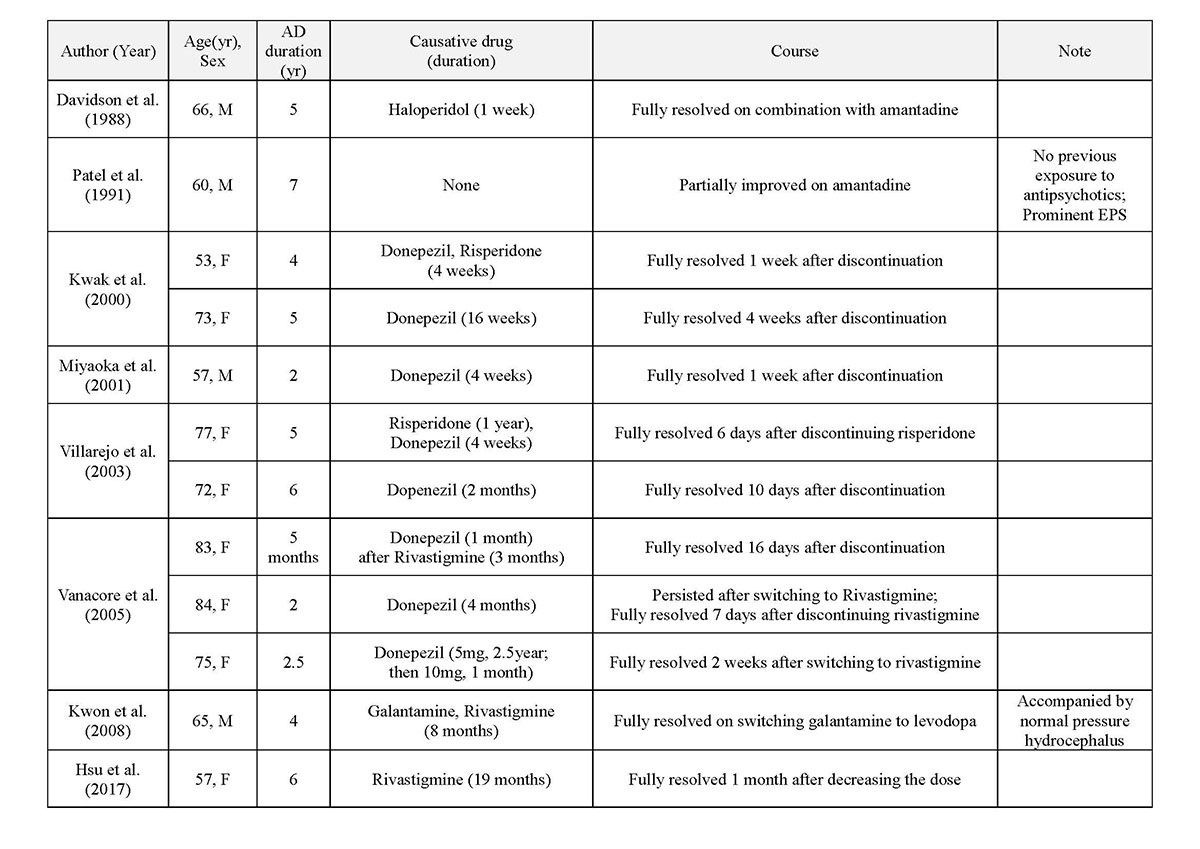Session Information
Date: Wednesday, September 25, 2019
Session Title: Cognition and Cognitive Disorders
Session Time: 1:15pm-2:45pm
Location: Agora 3 East, Level 3
Objective: We report a case of early-onset AD where spontaneous Pisa syndrome predominated.
Background: Pisa syndrome, an involuntary, reversible lateral deviation of the trunk, was first described as an adverse effect of neuroleptic treatment. A few cases have been reported in Alzheimer’s disease (AD), mostly following antipsychotic and cholinergic treatment.
Method: Clinical evaluation, Brain imaging (MRI, FDG PET, Florbetaben PET), Genetic analysis
Results: A 53-year-old female visited for cognitive impairment and lateral bending of the trunk. She exhibited a tonic flexion to the left, aggravated while standing, consistent with findings of Pisa syndrome. The bending had developed 2 years prior. Over the next year she became unable to feed or dress herself. A year prior to the visit, she was diagnosed as Parkinson’s disease. Levodopa was startedc but the posture continued to worsen. Evaluation revealed a profound cognitive impairment, scoring 4 on the MMSE and 5 on the MoCA. Optic ataxia, dressing and constructional apraxia’s were remarkable in the absence of visual field defect. Gait examination showed extrapyramidal features including generalized bradykinesia and decreased arm swings. MRI demonstrated medial temporal atrophy with widespread cortical atrophy. F-18-FDG PET showed posterior-dominant hypometabolism. Amyloid PET scan was positive showing diffuse cortical F-18-florbetaben binding, supporting AD. We screened 31 genes linked with dementia. A variant was found in the exon 6 of APP gene (c.694G>A;p.(Glu232Lys), heterozygous). We reduced dosage of levodopa, and started donepezil instead. The family reported some improvement in the degree of bending, although never completely resolved.
Conclusion: There is only one case of spontaneous Pisa syndrome described in AD. In that patient AD was diagnosed clinically, while extrapyramidal features provoked suspicion of Parkinson-plus syndrome. Our case is remarkable in that a positive amyloid PET scan supported the diagnosis. In both the cases cholinergic medications showed effect, while levodopa had no response. This suggests that a more complex physiologic process than cholinergic excess contributes to the Pisa syndrome in AD. The pathogenic variants of APP gene are known in exons 16 and 17, regions encoding the Aβ peptide. The mutation in our patient is in exon 6, thus less likely pathogenic. The significance of the variant remains to be identified.
To cite this abstract in AMA style:
KA. Woo, D. Yoo, JY. Lee. Spontaneous Pisa Syndrome in a Patient with Early-onset Alzheimer’s Disease [abstract]. Mov Disord. 2019; 34 (suppl 2). https://www.mdsabstracts.org/abstract/spontaneous-pisa-syndrome-in-a-patient-with-early-onset-alzheimers-disease/. Accessed May 15, 2024.« Back to 2019 International Congress
MDS Abstracts - https://www.mdsabstracts.org/abstract/spontaneous-pisa-syndrome-in-a-patient-with-early-onset-alzheimers-disease/


